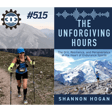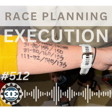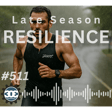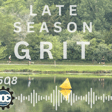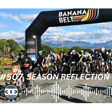
Jay Weber Safe-Fair-Fun
#495 Jay Weber - Safe, Fair, Fun!
Welcome to Episode #495 of the 303 Endurance Podcast. We're your hosts Coaches Rich Soares and April Spilde. Thanks for joining us for another week of news, coaching tips and discussion.
It’s Boulder 70.3 Weekend everybody! It’s going to be a toasty day in Boulder on Saturday with temperatures forecasted in the low 90s. Also bringing the heat is the professional men’s race with big names like Trevor Foley, Sam Appleton, Kevin McDowell, Chris Leiferman, Justin Metzler and more.
April - Plus we have a special guest interview with the head official for Boulder 70.3, local legend himself, Jay Weber. What better way to get the inside scope than to talk with the head race official! Speaking of scoops, Rich, are you ready to scoop up some UCAN?
Show Sponsor: UCAN
UCAN created LIVSTEADY as an alternative to sugar based nutrition products. LIVSTEADY was purposefully designed to work with your body, delivering long-lasting energy you can feel. Whether UCAN Energy Powders, Bars or Gels, LIVSTEADY's unique time-release profile allows your body to access energy consistently throughout the day, unlocking your natural ability to finish stronger and recover more quickly!
In Today's Show
-
Announcements and News (Rich)
-
Ask A Coach: How to keep races safe, fair and fun? Interview with Jay Weber
-
Get Gritty: Get Back on The Energy Bus Part 2!
-
TriDot Workout of the Week: Recovery Week Workouts
-
Fun Segment: Race Week Roulette Part 2!
Announcements and News:
Our Announcements are supported by VESPA Power today.
Endurance athletes—what if you could go farther, faster, and feel better doing it? With Vespa Power Endurance Nutrition, you can unlock your body’s natural fat-burning potential and fuel performance without the sugar crash. Vespa helps you tap into steady, clean energy—so you stay strong, focused, and in the zone longer.
Vespa is not fuel, but a metabolic catalyst that shifts your body to use more fat and less glycogen as your fuel source.
Less sugar. Higher performance. Faster recovery.
Home of Vespa Power Products | Optimizing Your Fat Metabolism
Use discount code - 303endurance20
TriDot Pool School July 26-27. https://www.tridotpoolschool.com/component/eventbooking/pool-school/tridot-pool-school-20250726-844-986-401-167-857/94?Itemid=762
Before we head into our Ask A Coach sponsor, I wanted to pass on some kudos we got from Sasha Goldsberry aka “Sasha Fierce” that she really loves the personal feel of our podcast and how lighthearted we are which just speaks to positive vibes and good energy we bring to the multisport space.
Ask A Coach Sponsor: G2G Endurance
Training alone is tough. Training smart? That’s where we come in. Grit2Greatness Endurance + TriDot gives you optimized training, the data, and the support to crush your goals—without burning out. Try it FREE for 2 weeks through our TriDot links below, then roll into your best season yet for as low as $14.99/month. With the right tools, you're unstoppable. Go to the show notes. Click the link. Let’s do this together!

